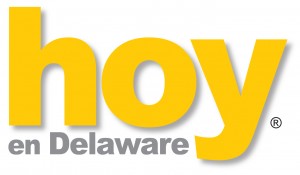In our age of political vitriol and angst, there is not much that both sides can agree on, except perhaps that good laws are rarely rushed through the legislative process. Case in point is the sudden rush in the Delaware legislature to push through a huge new tax increase of as much as 136 percent on alcoholic beverages in the state. It wasn’t until the end of the day Tuesday, June 9, that Majority Leader Pete Schwartzkopf even allowed the public to see House Bill 212.
Terrified by Delaware’s looming $751 million budget deficit, state lawmakers and Gov. Jack Markell are trying to squeeze more revenue from anywhere possible. That’s certainly understandable and the state has made some tough choices, including an 8 percent pay cut for 33,000 state employees. However, more than doubling the alcohol excise tax is likely to have unintended consequences, especially for Delaware’s tourism industry.
Tourism is the economic lifeblood of many Delaware communities and generates over $1.8 billion annually. Pleasant beaches and nice weather notwithstanding, tourism is not immune to economic downturns, as 1,500 recently unemployed hospitality workers can attest. Many individuals and families have to make tough choices with their finances right now and the impact of mistreating these out of state visitors, who are the golden geese of Delaware’s economy, is not fully known. Before it is rushed to the Governor for a quick signing, this bill needs to be given proper scrutiny so that its true consequences may be considered by the taxpayers.
When asked if they were worried about “Fleecing the Tourists” Joe Rogalsky, in the Governor’s office, pointed out that Delaware’s current liquor taxes are lower than liquor taxes in neighboring states, in particular he pointed to New Jersey. This recognizes the idea that people want to get the biggest bang for their buck, which at the moment is in Delaware. Unfortunately, according to the Federation of Tax Administrators, the proposed tax will make Delaware the least price competitive of all its neighbors, taxing liquor 300 percent higher per gallon than Maryland and 10 cents per gallon higher than New Jersey.
While it is true that few people make their vacation decisions based solely on the price of a Daiquiri, tourists are cautious citizens who look to many factors when deciding how to spend their hard earned vacation dollars. And the fact is that the hospitality industry of Delaware will not just absorb this new tax, they will pass down the added cost to the people of Delaware, and to the tourists.
The other problem is one of pure tax avoidance. When Maryland dramatically raised its cigarette tax the revenue collected ended up being well bellow their projections. The reason was simple. All Maryland smokers had to do was go to a neighboring state with much lower cigarette taxes and stock up.
This tax increase didn’t just depress cigarette sales but also associated convenience store sales as well as smokers bought more snacks, sodas, newspapers, etc. out of state. How difficult would it be for beach goers to simply bring their lower taxed alcohol with them instead of buying it in Delaware? This bill could actually result is less revenue for the state and for businesses.
Delaware merchants attract a lot of out of state shoppers with the promise of sales-tax-free shopping. By increasing the hidden excise tax on liquor the benefits of no sales tax quickly disappear as will the state’s competitive advantage.
The problems brought on by years of rampant over-spending will not be solved by taking more from the taxpayer. Hopefully, Gov. Markell, and the legislature will avoid these reactionary taxes that will be an economic liability. Taxpayers and tourists should not be punished for years of wasteful spending in Dover. In difficult economic times like these, it is important for legislators to always think before they tax.
David Sirkin is a research assistant with the American Legislative Exchange Counsel Jonathan Williams is the Director of Tax and Fiscal Policy at the American Legislative Exchange Council and the author of Rich States, Poor States.







